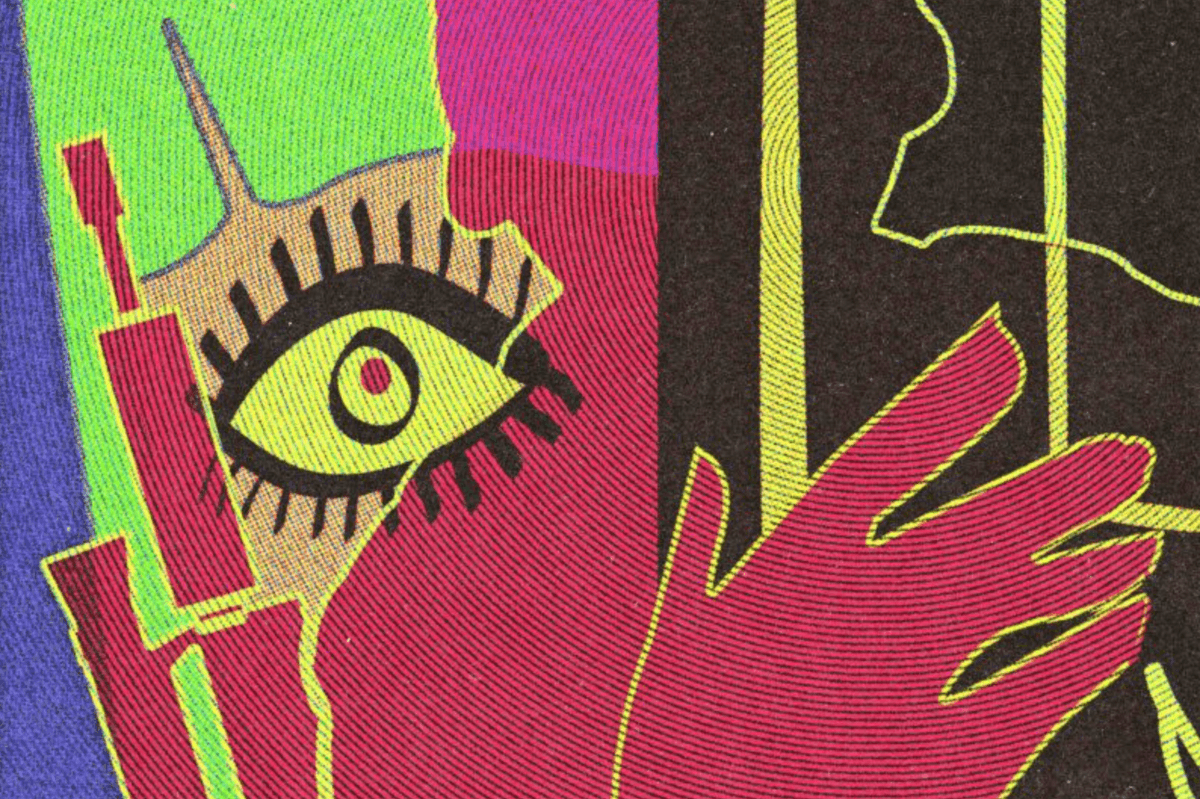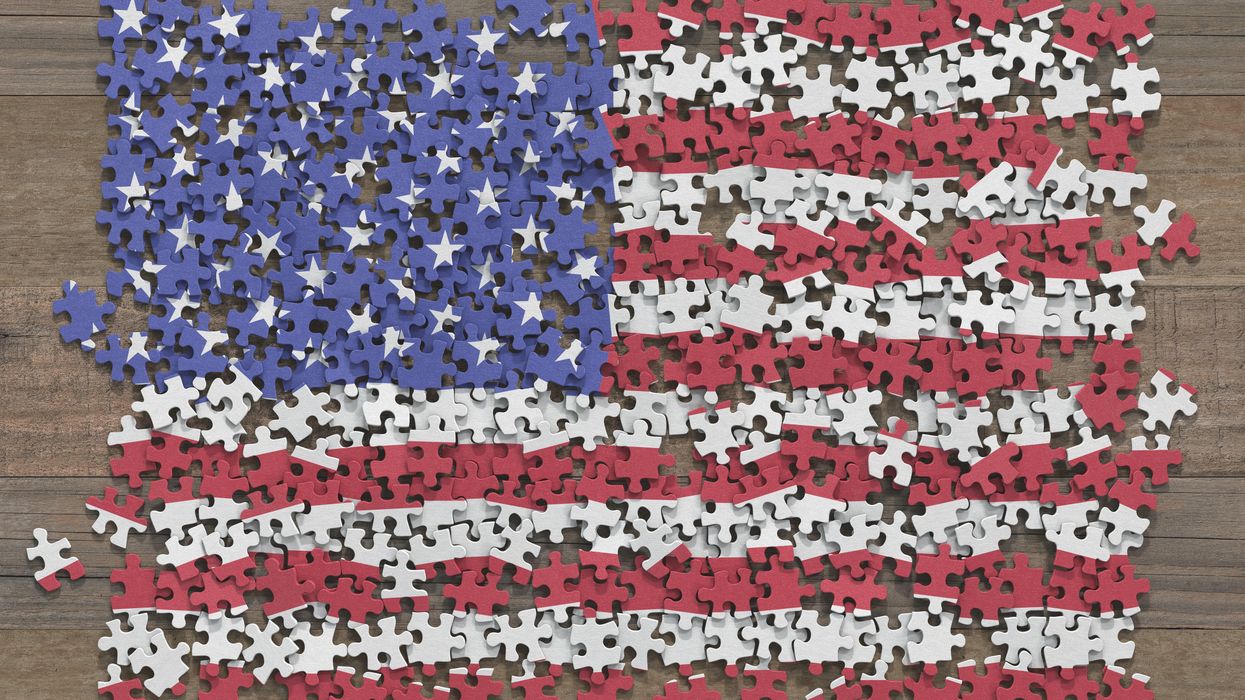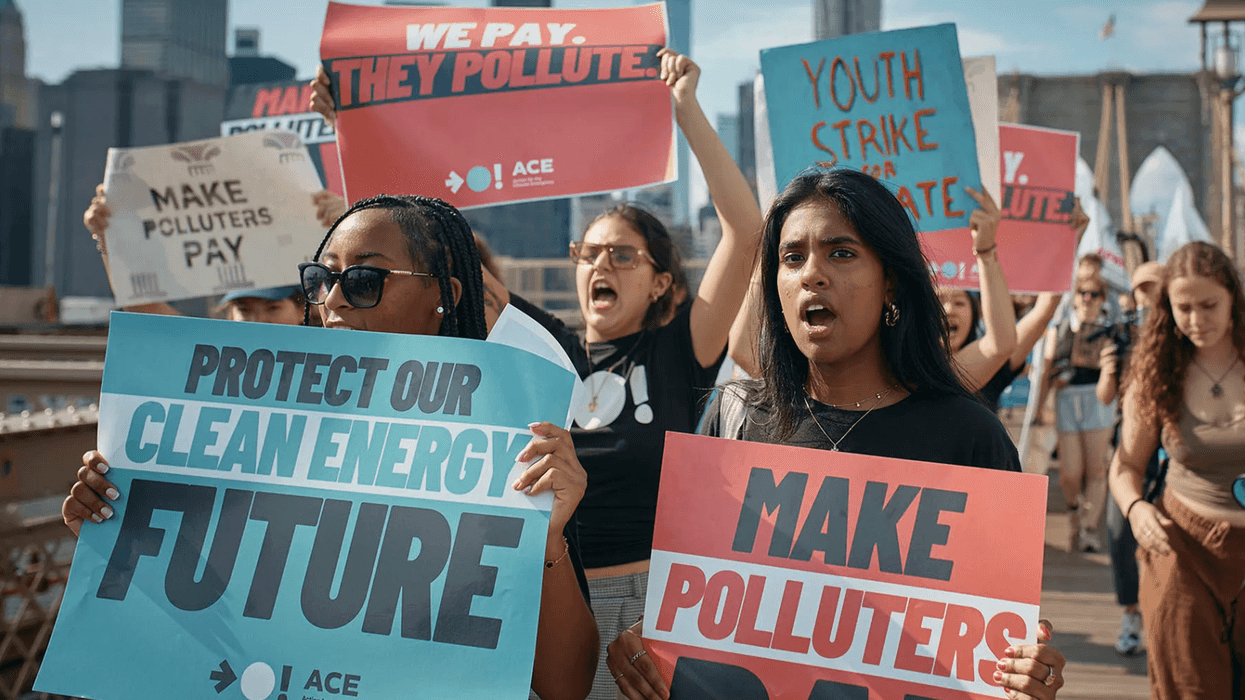The Fulcrum is committed to nurturing the next generation of journalists. To learn about the many NextGen initiatives we are leading, click HERE.
We asked Layla Halilbasic, an incoming junior at Webster University in St. Louis and a cohort member with the Fulcrum Fellowship, to share their thoughts on what democracy means to her and her perspective on its current health.
Here’s her insight on the topic.
I come from people who escaped genocide in a war-torn former Yugoslavia.
Like many first-generation Americans, my parents sacrificed everything in search of a better life for me, my sister, and the generations that followed us. For them, that better life where dreams could become reality only existed in one place: the United States. They arrived as refugees, not speaking a word of English, and set out to rebuild from literally nothing.
And they did.
More than 15 years after they arrived, I sat at the kitchen table as a middle-schooler, helping my dad study for his citizenship exam. I remember the pride I felt for him after he and my mom were officially naturalized – pride in how far they’d come, and in everything our family overcame. None of the discrimination or judgment they faced as immigrants could take away that moment. At last, they were U.S. citizens. They could finally call this country home.
I feel their legacy of resilience, strength, and survival every day. It’s stitched into who I am.
Yet, I now find myself asking the question: Why am I not excited about the idea of American democracy?
Democracy is supposed to be defined by voices; it’s a system where the will of the people shapes the laws that govern them. As the nation confronts generational turnover and an intense political climate, I am reminded that American democracy is designed to be messy; it has always been in its star-spangled DNA.
Gen Z is navigating financial hardship, some unraveling of social relationships, and a decline in trust in institutions. And, growing up in a world where voter suppression persists, corporate interests are louder than citizens, and political gridlock takes the place of progress, it’s no wonder that my generation wonders if this is what democracy is.
I feel as though some are questioning whether the system truly works for us, or whether it was ever built for us in the first place. That question doesn’t come from apathy. It comes from paying attention. It comes from asking questions. It comes from observing the gap between what we were taught America stands for versus what it delivers.
A national poll from the Institute of Politics at Harvard Kennedy School found that 51% of Americans under 30 believe the country is headed in the wrong direction. Only 19% were found to trust the federal government to do the right thing most or all the time, emphasizing an era veiled by uncertainty.
These statistics don't necessarily mean we’re lazy or disengaged. It reflects our societal awareness.
New research from Protect Democracy and the Center for Information & Research on Civic Learning and Engagement found that many are navigating a system they believe in but feel disconnected from.
Young Americans can be categorized into three distinct groups, each with different relationships to democracy, according to the report:
●Passive Appreciation (63%) – These young people believe in democracy, trust institutions, and reject authoritarianism. But their satisfaction can lead to complacency — they often engage civically only by voting.
●Dismissive Detachment (31%) – This group is skeptical of democratic principles and more open to authoritarian alternatives. Often left out of civic development opportunities, they lack trust in institutions and see little value in participation.
●Hostile Dissatisfaction (7%) – Deeply civically engaged and equally disillusioned, these young people are the most politically active — and the most willing to consider extreme measures when change feels out of reach.
I find myself resonating with a mix of these relationships. I believe in democracy, but I'm still asking questions.
Like me, most Gen Z respondents still have faith in this system of government at its core. The debate for many is whether democracy, in its current health, is something we can trust, something that delivers, or something that shuts out (not solely, but largely) marginalized groups entirely.
So, how can we fight for change, even when we feel defeated?
To do that, we must look at and reflect on our past. It is only through the lens of the past that we can clearly see a path forward, after all.
Young people have historically formed the backbone of many political movements. Student-led political movements have been a significant force for change throughout our global history. Students have often been at the forefront of civil rights, anti-war efforts, and other social justice movements, challenging the status quo and advocating for reforms.
In the United States, college students, like those in the Student Nonviolent Coordinating Committee, led sit-ins, protests, and voter registration drives during the Civil Rights Movement. In apartheid South Africa, thousands of students risked their lives in 1976 to protest racist educational mandates and sparked a global divestment movement. The youth-led “Otpor” movement played a vital role in tearing down the Serbian dictator Slobodan Milošević – the architect of the violence and ethnic cleansing that forced my family to flee Bosnia.
In light of what we’re seeing now, how might this inform a way forward?
We all genuinely have the power to drive social and political transformation. Whether it’s confronting racial injustice, demanding access to quality education, or standing against oppressive regimes, people have consistently demonstrated the courage and resilience necessary to face adversity.
Just last month, the “No King” protests drew between four and six million people across events in approximately 2,000 cities and small towns nationwide, according to data journalist G. Elliot Morris and the coalition. That means roughly 1.2% to 1.8% of the entire U.S. population attended a “No King” event somewhere in the country.
While we’ve yet to see direct change from these protests alone, they serve as a reminder that, yes, our democracy is still alive. No, we will not sit and watch as injustice surrounds us. And it’s up to us to keep democracy alive when those in power are trying to, metaphorically, pull the plug. There is an echoing power in our voices.
I, a 20-year-old first-generation American and college student, certainly don’t have all the answers. Sometimes I feel like I don’t have the whole story, too. Like so many of us, I’m forever learning and trying to understand the world and the context in which we exist.
However, I will say this: We should be at a point in our nation’s history where we no longer have to worry about democracy's survival.
It should be strong enough to endure polarizing disagreements, diverse enough to include all our voices, and fair enough to serve justice. Even though it’s painful and messy, we must have the hard conversations with friends, loved ones, and everyone in between. We must choose education over ignorance. We must continue to pay attention, acknowledge gaps, and speak out. We must continue caring so deeply. We must continue being human.
Democracy is struggling, but it is not beyond repair. Its survival relies on whether we believe we can still influence it. It’s up to us to take our disenchantment and turn it into a driving force for change.
I haven’t given up hope.
My parents taught me that building a better future means starting from nothing, even if it’s the hardest thing you’ll ever do. They did it in a new land with nothing but hope and grit.
So maybe the question isn’t whether we believe this democracy can work. Perhaps it’s whether we believe we’re strong enough to rebuild it again.
I think we are.
Layla Halilbasic is an incoming junior at Webster University in St. Louis, majoring in journalism and pursuing certification as a paralegal. With a drive to understand others and uplift underrepresented voices, Layla is dedicated to telling stories that bridge local and global perspectives through solutions journalism. She served as senior editor for the Ampersand, Webster’s student-produced magazine, and is a staff writer for The Journal, the university’s student-run newspaper.




















